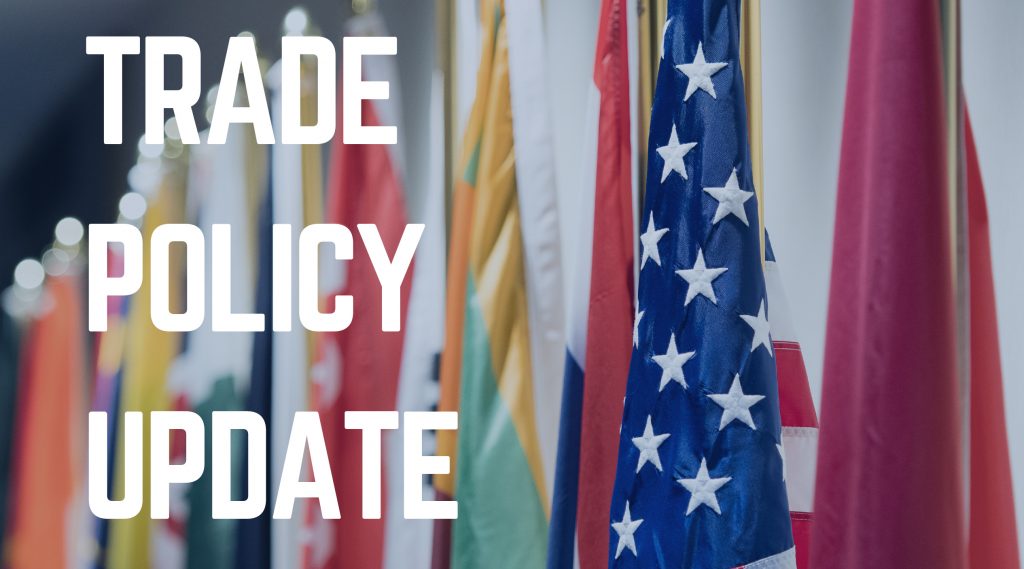The Office of the U.S. Trade Representative (USTR) notified the U.S. Congress this week it intends to negotiate trade agreements with Japan, the European Union and the United Kingdom, officially beginning a new wave of work toward expanding market access for U.S. businesses, including U.S. grain farmers and exporters.
The official announcement came Tuesday after months of speculation about which markets the Trump Administration would target first in its push for new trade talks and after several rounds of preliminary discussions with all three trading partners.
Notifying Congress of the intent to develop new trade agreements is an important sign of progress, since it also marks the first step in the process of negotiating an agreement that will be guaranteed up-or-down consideration by Congress through Trade Promotion Authority (TPA).
“Over the past two years, we have talked extensively with officials at USTR and at the U.S. Department of Agriculture (USDA) about how important new trade agreements are to our sector and our members,” said U.S. Grains Council (USGC) President and CEO Tom Sleight. “Seeing movement in these markets is a very tangible sign those needs are being addressed and encouraging to us as a part of our industry focused on new market access and finding new demand.”
U.S. Trade Representative Robert Lighthizer met with his counterparts from the European Union at last month’s United Nations’ General Assembly in New York. That round of discussions continued efforts started earlier in the year between President Donald Trump and European Commission President Jean-Claude Juncker and has been followed by several meetings between U.S. and EU officials since.
Lower-level trade ministers from the United States and United Kingdom have also met and have more talks scheduled for November in Washington.
Also last month, the U.S. and Japan announced there would be talks between their trade ministers, following a meeting between the two countries’ leaders.
All three markets are important for producers of U.S. grains and their related products. Japan, for example, is the second largest buyer of U.S. feed grains in all forms now and the European Union as a block is a major corn importer. Both the European Union and then United Kingdom have trade barriers, especially related to biotechnology, that could be effectively addressed in trade negotiations.
The Council, which operates market development programs in 50 countries for U.S. corn, sorghum, barley and related products including ethanol, maintains an office in Tokyo and runs programs in the European Union and United Kingdom through its regional office in Tunisia.
“We look forward to engaging negotiators at USTR and USDA in the coming months as they begin the important work of developing new policy with markets that offer us significant potential,” Sleight said. “The product these talks produce will be an important supplement to our existing cadre of agreements and also platforms for new agreements in frontier markets in Southeast Asia and Africa.”
More about the process of developing a trade deal is spelled out by USGC Director of Trade Policy and Biotechnology Floyd Gaibler in an audio report, issued recently by the NAFB News Service.
About The U.S. Grains Council
The U.S. Grains Council develops export markets for U.S. barley, corn, sorghum and related products including distiller’s dried grains with solubles (DDGS) and ethanol. With full-time presence in 28 locations, the Council operates programs in more than 50 countries and the European Union. The Council believes exports are vital to global economic development and to U.S. agriculture’s profitability. Detailed information about the Council and its programs is online at www.grains.org.

